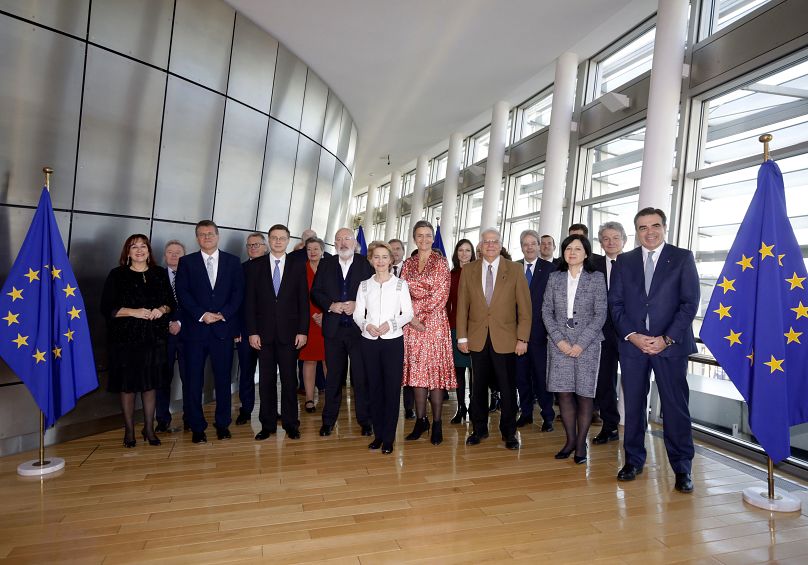All governments must announce their nominees for the European Commission by 30 August.
Ursula von der Leyen is facing challenging negotiations to create her new College of Commissioners with economic portfolios among the most coveted by European Union member states.
 ADVERTISEMENT
ADVERTISEMENT
 ADVERTISEMENT
ADVERTISEMENT
Italy, the Netherlands, Finland, Czechia and Romania have all indicated they hope to claim one such portfolio, with the one including the budget highly sought after.
"We have the Multiannual Financial Framework to be negotiated in the next term. This will be a very difficult and very heavy dossier, but it will also be something which will be very determining the priorities of the years to come," Janis Emmanouilidis, a senior policy analyst at the European Policy Center (EPC), told Euronews.
France is also in contention for a strong portfolio as it has nominated Thierry Breton, now Commissioner for the Internal Market, to stay in Brussels for a second term.
“There is always a great interest in Competition and Trade, areas where the EU has a lot of competence," Sophia Russack, a researcher at the Center for European Policy Studies (CEPS), told Euronews.
“The same applies to those that have a particularly high impact on the budget, for example the cohesion and agriculture funds which together represent around a third of the entire EU budget,” she added.
The new portfolios for grabs
In these power plays, Ursula von der Leyen can also use defence, a new portfolio dedicated to the military industry, seen as very relevant due to the war in Ukraine.
The Mediterranean - linked to migration management - and housing will also have dedicated commissioners for the first time.
To complete the "puzzle" and designate executive vice-presidents, the centre-right Commission chief will also have to take into account which political parties backed her reappointment in the European Parliament in July.
"One can assume that again - given that she is from the EPP, the Conservative Party - there should be a Socialist, a Liberal, and potentially a Green, among the top positions in the Commission," Emmanouilidis said.
Italy, the EU's third-biggest economy, has yet to officially indicate its candidate. Prime Minister Giorgia Meloni abstained during the European Council vote to renew von der Leyen at the helm of the bloc's executive.
The European Conservatives and Reformists (ECR), to which Meloni's party Brothers of Italy belongs, became the fourth biggest political group in the European Parliament and voted against von der Leyen's confirmation. What portfolio Italy will get is one of the hottest topics in Brussels.
The gender issue
Another trump card to use in the negotiations with the 27 capitals is gender balance as requested by von der Leyen whose first college achieved parity. But fewer than 10 women have been nominated so far by governments to head to Brussels.
"She can argue that if the country offers a very good candidate, then it can also offer her a very interesting portfolio. There are these kinds of backroom deals that can be made to put pressure on member states. So it's a mix of gender, political and geographical issues, a very complex agreement to implement," Emmanouilidis said.
On Wednesday, Portugal nominated former Finance Minister Maria Luís Albuquerque, but Denmark announced a male name, Dan Jørgensen, former Minister of Climate and Energy.
"The issue of gender is also a sign of current times. Parliament itself is currently made up of fewer female members than it was in the past, not even 40%. But we also have to say that in some countries there are internal procedures, for example, that the Parliament and or the President have to agree with the choice of the Prime Minister," Russack said.
After receiving all the names, von der Leyen will conduct individual interviews and present the final selection to the European Parliament, which will hold hearings with the 26 candidates. If some are rejected, new names must be presented until the entire team is approved in a plenary session.











